Lena Dunham has endometriosis - and so does Alice: We explain the condition
- Published
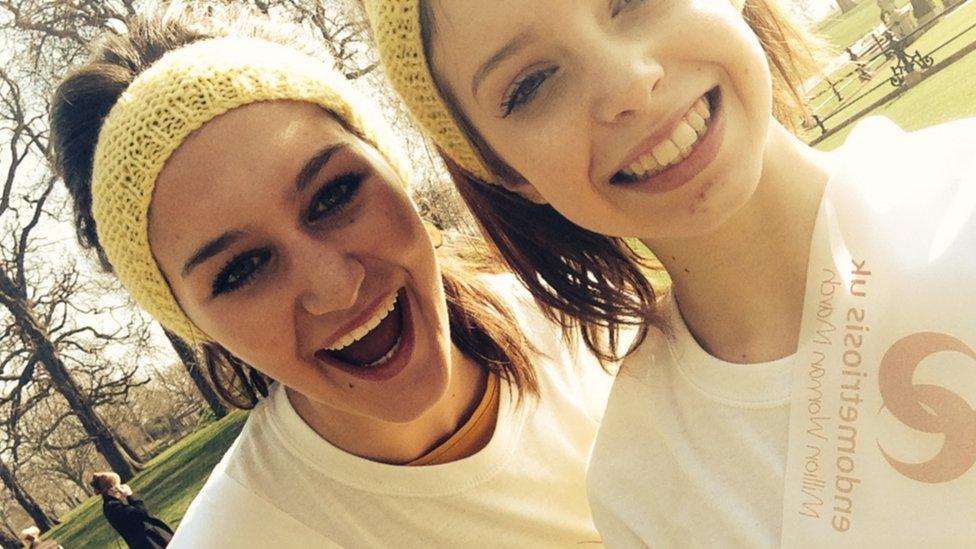
Alice (left) was diagnosed with endometriosis six years ago
Lena Dunham revealed on Facebook, external this week that she is taking time off from promoting the final season of Girls, because she's been diagnosed with endometriosis.
The 29-year-old has lived with the illness since she was a teenager, and has written about it before, external.
It's a serious problem that affects around one in 10 women.
But it's difficult to diagnose and not many people understand it. Here's what you need to know.
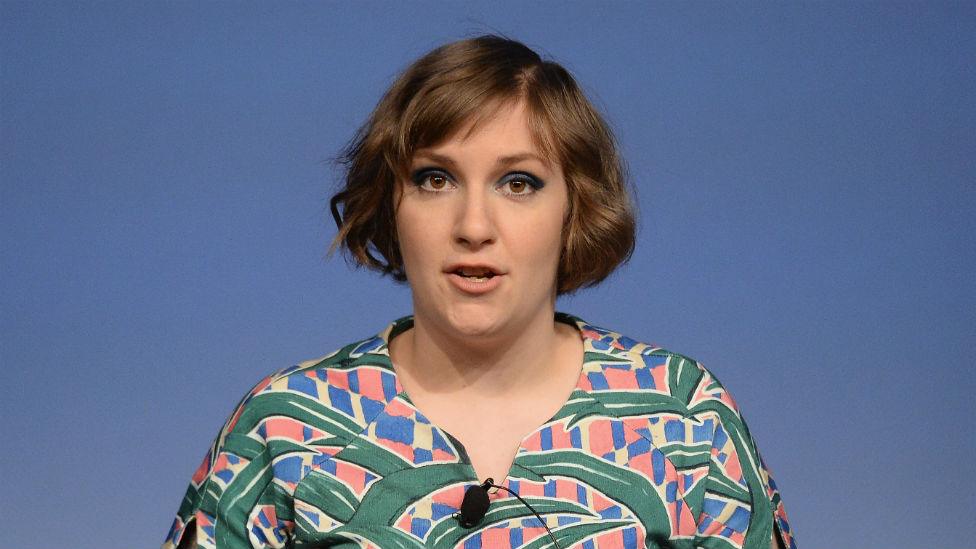
Girls creator Lena Dunham revealed this week she's getting treatment for endometriosis
What is endometriosis?
It's a disease where cells like those in the womb appear elsewhere in a woman's body.
The cells act in the same way as during your period, building up and breaking down. But they have no way of getting out of the body.
It causes really painful periods and heavy bleeding, fatigue, bowel and bladder problems. It can lead to depression, and even make women infertile.
How common is it?
You probably know at least one person with it.
Endometriosis affects approximately 176 million women of reproductive age (15-49) worldwide.
Around 1.5 million women in the UK are currently living with the condition.
What does it feel like?
"The pain from endometriosis is excruciating. It's like someone's clawing at your insides and pulling them out," says Alice Smith, a 20-year-old student from Leicester who was diagnosed with endometriosis when she was 14.
"Every time I had a period I was rushed into hospital."
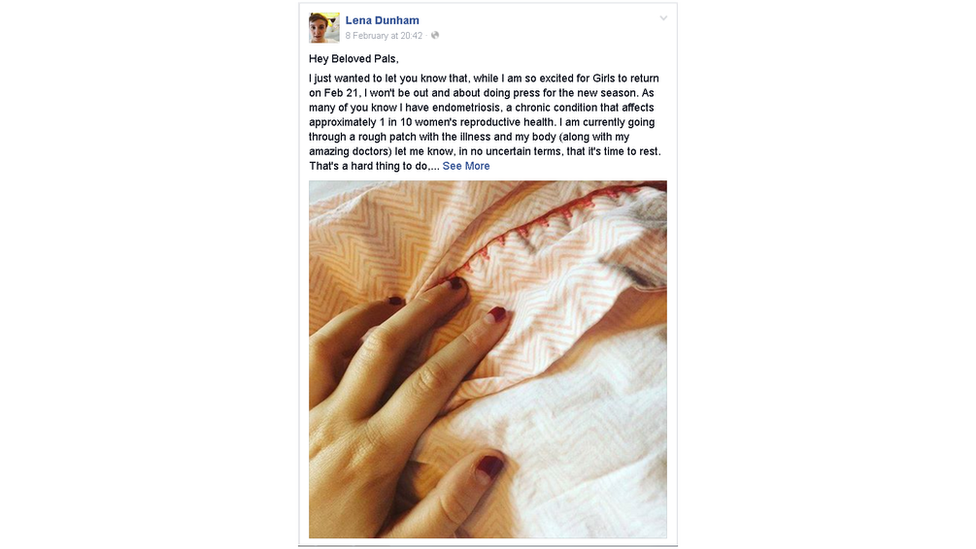
The Girls creator said on Facebook she's going through a "rough patch" with the illness
The pain in her abdomen got so bad that doctors compared it to the final stages of childbirth.
She needed morphine drips every two weeks and missed a lot of school.
"I was so relieved when [the doctors] told me I had endometriosis because this thing actually had a name, we knew what it was.
"But when I went home and started Googling, the reality came crashing down.
"I was reading articles saying 'it gets no better, it gets worse'. People [were] saying they were childless. I mourned for these children I would never have, which at that age is crazy.
"My body really was like a prison of pain. To read that as my future was absolutely horrifying."
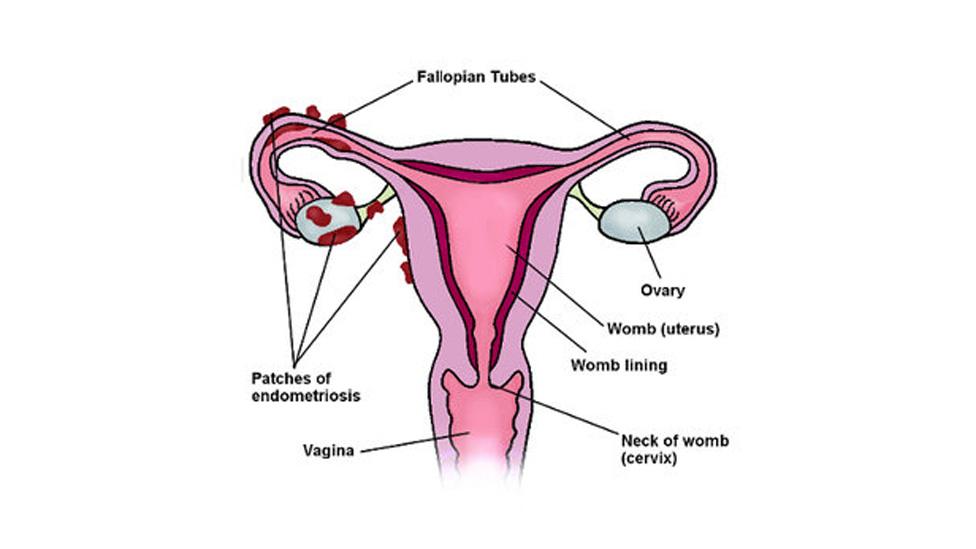
Alice has had some treatment and says the pain is now "manageable".
"Now I don't have pain every single second of every day, which is nice."
But it does stop her from living like a "normal student" in Manchester, where she's studying.
"I need to equip my body with the best food, and a good amount of sleep.
"I can't juggle all the plates like normal people can do, my body just can't take that."
And she says it's likely to hold her back in her career if she chooses to have children when she's older, because she would have to take time off.
Why is it difficult to diagnose?
Alice says she feels "lucky" to have been diagnosed after two years of suffering with the symptoms.
Many women wait much longer. It takes seven years on average to be diagnosed, according to the charity Endometriosis UK.
That's because the symptoms are similar to those of common conditions like IBS (Irritable Bowel Syndrome). Often doctors mistake it for bad period pain.
Endometriosis UK recommend that you ask to be referred to a specialist if you're not happy with the diagnosis from your doctor.
The only definitive way to diagnose endometriosis is by a laparoscopy. That's an operation in which a camera is inserted into the pelvis.
The surgeon uses the camera to look for problems.
How is it treated?
At the moment there is no cure for endometriosis, but there are ways to manage it.
Doctors treated Alice with what's known as "false menopause". They're drugs or regular injections that stop the ovaries being stimulated and the hormone oestrogen being produced. It's the same effect as when women have passed reproductive age.
Like Alice, many women regularly take pain killers and have hormone treatment.
Others have surgery. In the most serious cases, that can be a hysterectomy, when the womb, or part of it, is removed.
For more information and advice on endometriosis, visit Endometriosis UK , external.
For more stories like this one you can now download the BBC Newsbeat app straight to your device. For iOS go here, external. For Android go here, external.
- Published7 January 2016
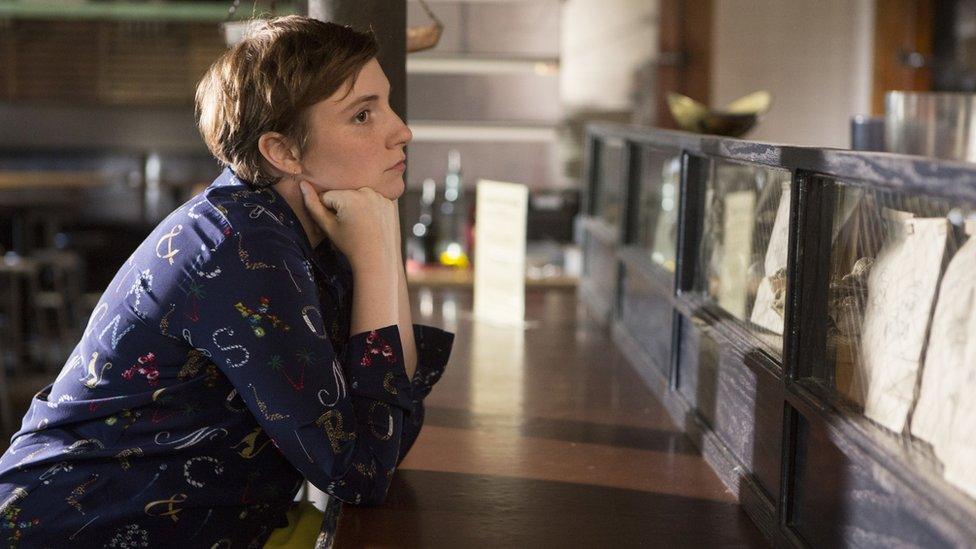
- Published30 September 2015
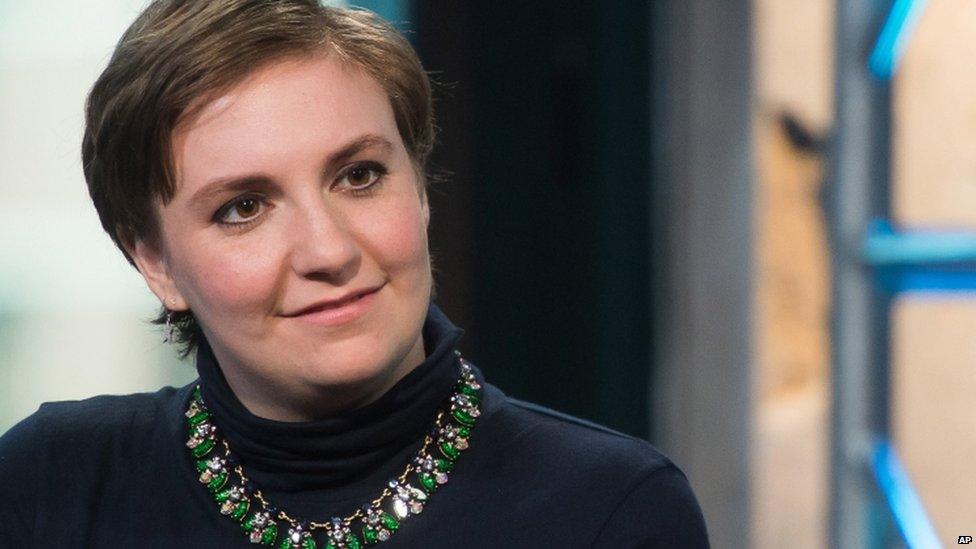
- Published13 January 2015
